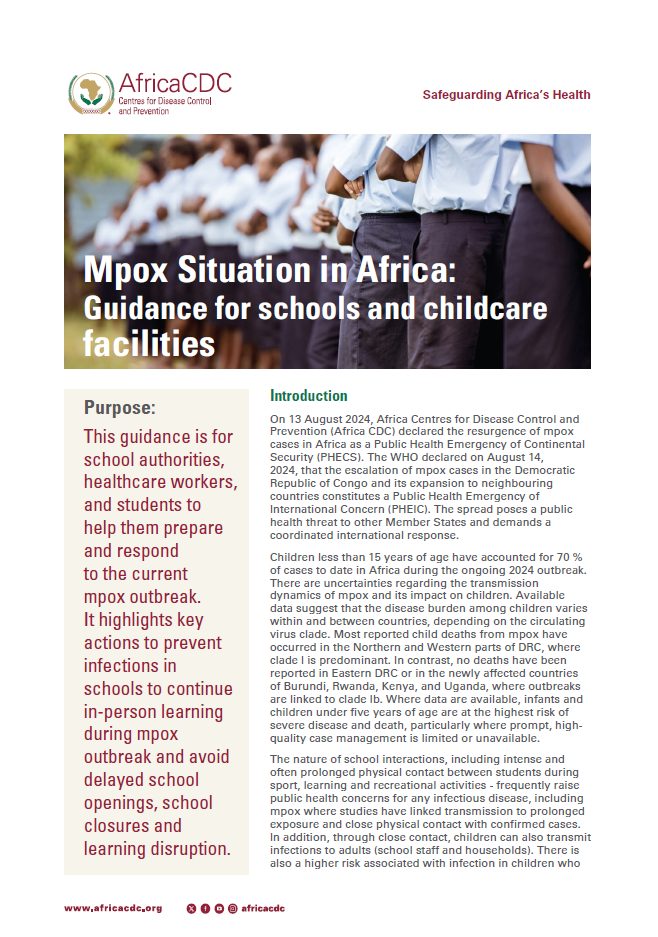Purpose:
This guidance is for school authorities, healthcare workers, and students to help them prepare and respond to the current mpox outbreak. It highlights key actions to prevent infections in schools to continue in-person learning during mpox outbreak and avoid delayed school openings, school closures and learning disruption.
Introduction
On 13 August 2024, Africa Centres for Disease Control and Prevention (Africa CDC) declared the resurgence of mpox cases in Africa as a Public Health Emergency of Continental Security (PHECS). The WHO declared on August 14, 2024, that the escalation of mpox cases in the Democratic Republic of Congo and its expansion to neighbouring countries constitutes a Public Health Emergency of International Concern (PHEIC). The spread poses a public health threat to other Member States and demands a coordinated international response. Children less than 15 years of age have accounted for 70 % of cases to date in Africa during the ongoing 2024 outbreak.
There are uncertainties regarding the transmission dynamics of mpox and its impact on children. Available data suggest that the disease burden among children varies within and between countries, depending on the circulating virus clade. Most reported child deaths from mpox have occurred in the Northern and Western parts of DRC, where clade I is predominant. In contrast, no deaths have been reported in Eastern DRC or in the newly affected countries of Burundi, Rwanda, Kenya, and Uganda, where outbreaks are linked to clade Ib. Where data are available, infants and children under five years of age are at the highest risk of severe disease and death, particularly where prompt, high-quality case management is limited or unavailable.
